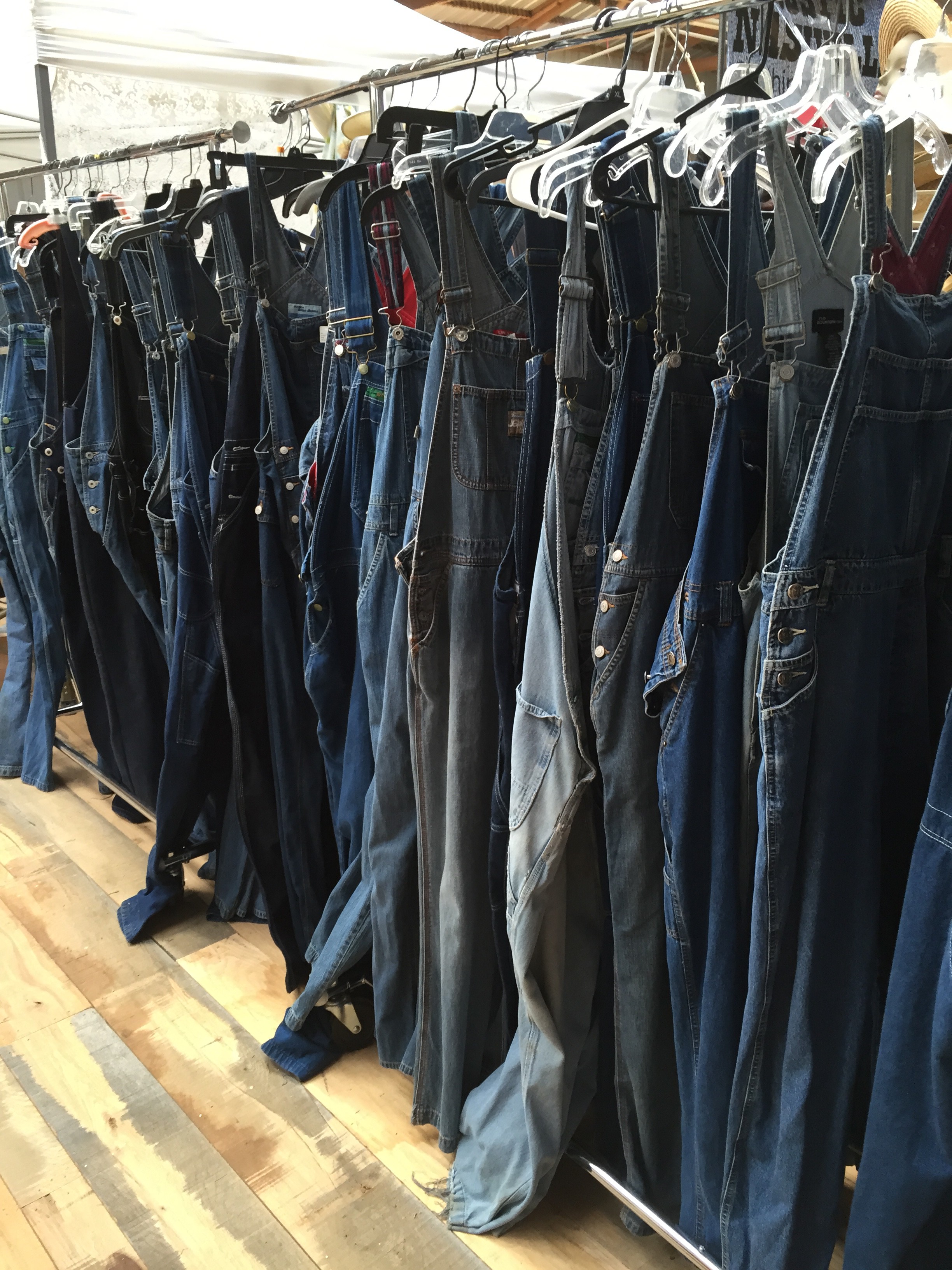
by bsquared5@aol.com | Jul 28, 2015 | Thoughts
At a barn sale recently, I had to smile when I spotted an entire rack of denim overalls. Apparently, along with boots and old farm tools, they’re now “vintage” enough to be trendy. Overalls were the only thing I ever saw my grandfather wear. In fact, I’ve never even seen a picture of him wearing anything else.
For decades, he wore them for fishing, gardening, bank meetings, and formal portraits. In 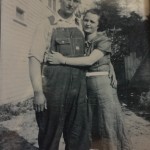 the hot sun of Panama City, Florida, he often wore them shirtless and commando, one shoulder strap dangling from the back. He’d wear them until the buttons wore out, and then he’d hitch them up and pin them with fishing tackle. Denim Dickies with a collared tan or blue work shirt were utilitarian and tough, features that pretty much summed up his personality, too. He was a big man, standing 6’4″, but seemed even taller with a full head of thick white hair that stood on end from running his hands through it.
the hot sun of Panama City, Florida, he often wore them shirtless and commando, one shoulder strap dangling from the back. He’d wear them until the buttons wore out, and then he’d hitch them up and pin them with fishing tackle. Denim Dickies with a collared tan or blue work shirt were utilitarian and tough, features that pretty much summed up his personality, too. He was a big man, standing 6’4″, but seemed even taller with a full head of thick white hair that stood on end from running his hands through it.
Like many in his generation, he grew up poor, scraping through the Depression in the deep South of Birmingham. Any work that could put food on the table was good enough for him. With just a 6th grade education under his belt, he worked on machinery, sold gasoline, and rented properties until he eventually owned a general store in Alabama. After several years of this, he pulled up stakes with his wife and four children and headed south to the Gulf, where he became one of the first to start a charter deep sea fishing business in Panama City.
He bought a fixer-upper boat in Tampa and headed north through a raging hurricane towards the docks that they would call home. His oldest son and younger daughter piloted the boat as it pitched and dipped through the stormy ocean, while he yelled at them to head straight into the walls of waves or they’d be swamped. When they finally docked in Bay County, he knew he’d picked a good vessel.
In the 50’s he invented a way to use electric motors that fed shells into machine gun turrets of B-29 bombers. He transformed these into electric fishing reels, bought all the surplus gun motors from across the country, and started a thriving business renting them to area fishermen. Heavy duty reels like these were essential in landing the 100-pound groupers they’d regularly catch in a day at sea.
We called him “Pappaw” only because it paired 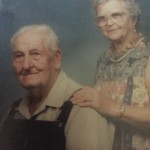 with “Mammaw,” our grandmother’s name, first uttered by a stray cat outside the screen door on her porch, mewling for food. “Meowmawww,” it cried endlessly, christening her forevermore.
with “Mammaw,” our grandmother’s name, first uttered by a stray cat outside the screen door on her porch, mewling for food. “Meowmawww,” it cried endlessly, christening her forevermore.
Together they raised four children. The youngest contracted spinal meningitis before he was two and, with the vintage medicine of 1947, was pronounced terminal. One thing you didn’t do was defy Pappaw, and he’d already told the doctors that wouldn’t happen. So they brought their boy home  and he lived. His hospital bed was a permanent fixture in their house from then on until he died over 40 years later, my grandmother caring for his every need daily. This was the definition of a special needs child, before there were programs, help, or even a name for what they shouldered.
and he lived. His hospital bed was a permanent fixture in their house from then on until he died over 40 years later, my grandmother caring for his every need daily. This was the definition of a special needs child, before there were programs, help, or even a name for what they shouldered.
I remember Pappaw hoeing his garden, growing beans, tomatoes, corn and things for Mammaw to can in the summers. He’d sweat and spit and curse to himself as he coaxed 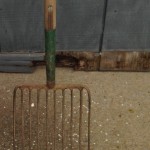 the sandy soil to cooperate. I think his secret fertilizer was fish guts, but I can’t prove it. I have a pitchfork that belonged to him. It sits in my barn with some other “vintage” tools, but I actually use it to clean the horse’s stall. I love its faded green paint and rusted tines, and the fact that the dirt and sweat from his laboring hands helped to make the wooden handle worn and smooth.
the sandy soil to cooperate. I think his secret fertilizer was fish guts, but I can’t prove it. I have a pitchfork that belonged to him. It sits in my barn with some other “vintage” tools, but I actually use it to clean the horse’s stall. I love its faded green paint and rusted tines, and the fact that the dirt and sweat from his laboring hands helped to make the wooden handle worn and smooth.
He is the epitome of vintage–a classic make from a certain time. The lessons I learned from his supper time lectures and from watching him work, hands never idle, are as much ingrained in me as the stains in the handle of the pitchfork. Vintage may be all the rage these days, and I love a good barn sale. I sure wish we could bring back the vintage “whos” along with the “whats”. Pappaw might have gotten a kick out of that rack of overalls. Wardrobe fit for a king.

by bsquared5@aol.com | Jul 17, 2015 | Thoughts
There is a sound a hive makes. It is a kind of music with a pitch all its own, about an octave below middle C on the piano. Hum lightly in that key, just an easy exhale, with your teeth barely grazing each other so that they vibrate with the tone, and you almost have it: the sound of thousands of tiny wings beating at once.
Different from a cicada’s siren call, the deep Doppler effect zip of a hummingbird, and even the lazy drone of its cousin the bumblebee, the honey bee’s sound is distinct. We have a flowering cherry tree that blooms ballerina pink with flowers each spring right outside the garage. Stand still a minute beneath that tree, and a symphony unfurls. It’s easily drowned out by the lawn mowers, bird songs, and neighborhood dogs calling to each other, but if you pay attention and look up, the tree comes alive with activity, and the sound of the bees working the flowers is like a lullaby.
Approach the hives on a sunny, windless day, and from about six feet away you can start to hear the hum. If you are alert, you will see the bees at the hive entrance, like the world’s busiest airport sans air traffic controllers. They have a flight path, un-logged on any official register, but it’s always the same direction of takeoff, out and to the right, avoiding the hedgerow. Their landing strip is short, roughly 14-16 inches wide depending on the size of the hive, and the incoming bees navigate carefully, their legs yellow or orange with their pollen cargo.
In winter, the hive makes a different, softer sound. Then, the colony is clustered deep inside, forming a ball around the queen, the hive’s jewel. I trek out back to the tree line to check on them in the cold, the frosty pasture grass crunching underfoot. No flying in winter. The bees stay inside, furiously fanning their wings to keep the hive temperature around 94 degrees. I place my ear against the side of the hive and give the wood a sharp rap. Inside, the bees respond with a loud buzz: “Nobody’s home!” they grouse, “Go away!”
As Winnie the Pooh quips, “You can never tell with bees.” Beehives have moods. If a storm front is near, if there’s trouble with the queen, or if you’re out to rob their hard-won honey, tempers flare. I’ve only been at this a few years and am still a novice beekeeper, but several well-placed stings have taught me to respect these moods. This past week, we harvested the summer’s honey from our few hives. It must be some sort of penance that the honey harvest occurs when outside it feels roughly like the surface temperature of the sun. So you work quickly, both to disturb the bees as little as possible and to survive impending heatstroke.
Once I opened the cover and took apart a few boxes from the hive, they knew something was up. Smoke from the pine-filled smoker masked their pheromones and sent them downwards into the deepest part of the hive. Still, that familiar pitch changed from the nonchalant hum to a higher pitched clarion call. The bees lined up with just their heads peeking out along the top of one of the wooden frames, figuring out my intentions. They looked like little children from an illustrated nursery rhyme, all tucked under the covers up to their noses. Except they were wide awake, on alert.
As I removed the frames, heavy with comb and honey, I had to give each one a hard shake to remove the bees that clung to it and used a soft long-bristled bee brush to scoot the persistent ones away. Each hard shake sent hundreds of bees flying, the buzz one of unmistakable annoyance. Only one kamikaze bee 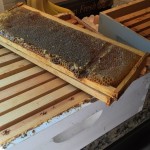 was particularly foul-tempered, and her stinger pegged me in the thigh like an assassin’s dagger, twisting at its mark. I could do nothing but let the stinger pulse while I held the frame full of bees. I would have to wait to remove it once I peeled off my sweaty clothes in the safety of the house. Fair enough. It takes 12 bees their entire lives to make a single teaspoon of honey, and we took over four gallons of their labor. I conceded the sting.
was particularly foul-tempered, and her stinger pegged me in the thigh like an assassin’s dagger, twisting at its mark. I could do nothing but let the stinger pulse while I held the frame full of bees. I would have to wait to remove it once I peeled off my sweaty clothes in the safety of the house. Fair enough. It takes 12 bees their entire lives to make a single teaspoon of honey, and we took over four gallons of their labor. I conceded the sting.
Beekeeping is a funny term. Can you really “keep” tens of thousands of free-flying insects? I think of it more like bee tending, which sounds a lot like “pretending” if you say it out loud. I give them a home (which they’re free to leave) and occasional food and parasite control, but they do all the rest. Tending bees has a domino effect. All of a sudden, you become more attuned to the weather and insecticide applications on nearby yards and farms. A whole world of botany opens up as you track what plants flower during which times of the year. You can barely mow the lawn anymore because you regret haplessly bowling over a patch of clover where bees flit back and forth.
These are insects, and they have the six legs to prove it. I feel no affinity for the ants, beetles, or garden pests I see every day. But the bees are “my girls.” All but a few hundred are female, rearing the young, feeding the colony, building wax comb, and crafting golden honey with creativity and beauty. They care for the queen, keep the hive clean, and occasionally give their lives in defense of their home. And, they appreciate a pretty bouquet of flowers. Not so different from my own life, and most women I know, come to think of it.
The more time I spend in the hives, the more I see the parallels. My home, my work, everyone’s singular, individual gifts and missions. Lots of days can seem like drudgery and hassle. Occasionally, one of us gets run over by a passing lawn mower. Rather than a Keeper, we have one who gently tends. We are free to fly away if we wish, but what a delight to the Tender when we stay. I am surrounded by friends and family who don’t hesitate to rush in with a cooperative instinct to help and love. We’re in this together. And the rewards. The rewards are so, so sweet.

by bsquared5@aol.com | Jul 3, 2015 | Thoughts
Independence Day is tomorrow, which means here in Tennessee tents selling pyrotechnics are on every corner. For at least a week before and after the actual holiday, fireworks (or “sparkies,” as one of my nephews used to call them) begin at sundown in neighborhoods all over the state. Dogs go nuts, barking wildly or shivering uncontrollably beneath the bed. Early risers grouse about the useless late night noise.
Some friends of ours were particularly grumpy one night because they and their children had to get up early the next morning for an event. Loud pops and booms from their neighbors went off until pretty late. Each time the sky crackled and lit up, they grumbled to each other about the rudeness, insensitivity, and lack of consideration. They debated whether to call the police for noise ordinance violations. They covered their heads with pillows and growled themselves to sleep.
The next morning, worried about her lack of sleep, they asked their daughter if she’d heard the fireworks the night before. “Yes!” She beamed and gushed. “They were beautiful! Do you think we could go over and tell them thank you? They were so special and such a wonderful surprise for my birthday!”
Just like that, all the contempt and fuming from the previous night melted away.
Lately at my house, we have been talking a lot about extreme task-oriented people. These (and I am one) are the “Rabbits” of the world. Remember Rabbit from Winnie the Pooh? Underneath, he was a loyal and willing friend, but mostly what he projected was irritation. Rabbit was large and in charge. He was great at leading expeditions  and organizing search parties, but you should be very, very careful questioning his decisions or methods. If you interrupted his routine, did something differently than his way, or messed up his orderly garden, he could throw a mighty hissy fit. Maya Angelou said that people generally won’t remember what you said or did in life, but rather how you made them feel. Rabbits have a hard time with this. They’re so focused on the task at hand, checking things off their list, and doing things “right,” that the people who might come along to help end up being a “bother,” to use a familiar Pooh word.
and organizing search parties, but you should be very, very careful questioning his decisions or methods. If you interrupted his routine, did something differently than his way, or messed up his orderly garden, he could throw a mighty hissy fit. Maya Angelou said that people generally won’t remember what you said or did in life, but rather how you made them feel. Rabbits have a hard time with this. They’re so focused on the task at hand, checking things off their list, and doing things “right,” that the people who might come along to help end up being a “bother,” to use a familiar Pooh word.
You know what they say about rabbits: they multiply. My family is a whole warren unto itself. Lemme ‘splain. Once upon a time, my mother had just finished grocery shopping for our large clan and we had unloaded the armfuls of bags from the car. We were in the process of putting things away when my father (the head rabbit) came in, having been interrupted from a task he was finishing. Like any respectable military guy, he liked things orderly and ship-shape, which was not always the case in a big family like ours. The kitchen cabinets stood open, grocery bags were all over the floor, and cans littered the counters. His response (very rabbit-like), instead of noticing the helpful family members all pitching in, was to slam one of the cabinets in irritation at the chaos.
When it bounced back open, he grew angry. How dare it remain open? This defiant cabinet was deliberately mocking him. To teach it a lesson (this is a cabinet, mind you), he slammed it shut with even greater force to make his point. This time, it ricocheted back even wider, clocking him in the head and knocking him cold on the kitchen floor. The rest of us little rabbits froze, wide-eyed and shocked. Then the tittering started, the inappropriate kind of giggling like the kind that strikes you out of nowhere at a funeral or gynecological exam. My mother’s lips were clamped tight, but her shoulders shook as she knelt to tend to the rising knot on my father’s head.
I’ve told that story many times to teach my son, who has some rabbity tendencies, the futility of getting angry at inanimate objects. Even as a small child, if he bumped into a wall or table, he would automatically hit it back, presumably to “teach it” not to mess with him. I would try not to laugh as I explained how the table or wall was not actually out to get him.
Being a list-making, task-checking organizer myself, I struggle with the drive for constant order and accomplishment. It’s one of God’s greatest gifts to me to be a parent, where the nature of the beast seems to be disarray and not sweating the small stuff. Daily, I get to practice softening my “rabbit edges.” Daily, I fail. But God has this persistent sense of humor, and there’s always more to practice on the next day. Living with little people (and grown people with their own opinions) requires flexibility and humility, two concepts that are in short supply with us Rabbit types. (Rabbit once tells Owl that they are the only two in the Hundred Acre Wood with brains. “All these others have only fluff.”)
It’s especially helpful to spend time with people who are more Rabbit-like than I am. People who, through their circumstances, maybe haven’t had to practice being ok with things being less “right” and more “good enough.” When I catch myself holding my breath around them or being reluctant to offer to help, say, chop the onions, because inevitably, it won’t be the way they would have done it, it sinks in. What do I want people to remember about me? My perfectly symmetrical onions or the way we could laugh and make a mess in my kitchen making lunch?
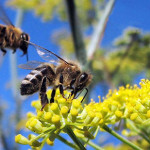 Yesterday morning, I sat on my back porch drinking my java and watching the bees swarm the crepe myrtle. It used to be that, if I’d noticed the bothersome insects in the flowers at all, I would’ve wrinkled my nose and made a mental note to avoid the area. Bees = stinging, impending danger. Now that I keep a few hives at the back of the property and have gotten to know them, I notice the bees all the time, speak encouraging words to “the girls” as they buzz from bloom to bloom, and feel a happy satisfaction at what they’re accomplishing. Bit by bit, the heart changes.
Yesterday morning, I sat on my back porch drinking my java and watching the bees swarm the crepe myrtle. It used to be that, if I’d noticed the bothersome insects in the flowers at all, I would’ve wrinkled my nose and made a mental note to avoid the area. Bees = stinging, impending danger. Now that I keep a few hives at the back of the property and have gotten to know them, I notice the bees all the time, speak encouraging words to “the girls” as they buzz from bloom to bloom, and feel a happy satisfaction at what they’re accomplishing. Bit by bit, the heart changes.
Last night it was almost midnight when I rolled over, awakened by the fireworks in our neighborhood. I had to smile despite my grogginess, as I remembered that somewhere a child sat in their colorful glow, marveling at the sparkies.

by bsquared5@aol.com | Jul 2, 2015 | Thoughts
Years ago, my young niece picked my sister’s wedding ring from the top of her dresser and headed across the street to the sandlot to play Buried Treasure. Her optimistic, hopeful little self thought this a grand idea. As the game wore on and her attention drifted, eventually the buried and reburied ring could no longer be unearthed. The day’s treasure stayed lost. (Also lost: my sister’s temper and my niece’s privilege of going outside.)
I’m a loser. I’m constantly losing my keys, glasses, phone, the remote. I have more than once lost my car in a parking lot. I lose my way. Before GPS, it would stress me out to drive even into our town’s small square because I would inevitably take a wrong turn. I lose my temper, I lose track, I lose my train of thought, but sadly, rarely my appetite or weight. On occasion, I’ve lost sleep, sanity, wits, and most of my marbles. Somewhere along the way, I lost my flexibility, youth, virginity, and solid memory, not necessarily in that order.
My kids lose things too. They’ve lost teeth, ball games, earphones, shoes, textbooks, glasses, retainers. Big things: confidence, innocence, friends, judgement, freedoms and privileges. We lost an inner tube at the ocean once, watched helplessly as it floated away with the rip tide, imagined it beaching itself someday in Australia, providing a brief rest stop for seagulls along its way.
We are a nation of losers. I read recently that last year the TSA pocketed $675,000 in lost loose coins from airport security. There’s a crazy place in Scottsboro, Alabama called the Unclaimed Baggage Center. It’s like a constant, dynamic warehouse-sized yard sale of the contents from people’s lost luggage. You can get anything there, from electronics to wedding dresses to oriental rugs people have shipped–and lost. It’s kind of a voyeuristic experience, sifting through someone else’s belongings to find fascinating objects. I feel bad buying things, imagining somewhere a bereft and naked bride weeps while strangers try on her gown in a fitting room in Alabama.
We can’t hold onto anything. We lose sunglasses and cameras at amusement parks. We lose our lunches after riding the rides. We lose sobriety, opportunities, jobs, hair, faith, hope. We lose touch with friends and family and eventually, inevitably, we lose parents, friends, spouses. If we let it, our whole lives can seem like nothing more than a series of losses from beginning to end.
I used to create scavenger hunts for my kids with rhyming clues. It didn’t matter what they were searching for, a pack of gum or small toy. Excited by the hunt, they loved to race each other around the house from clue to clue. Somewhere along the way, we eventually stopped this game, and I wonder if they even remember that we did it at all. When is it that we stop being delighted by what’s next? Somehow a gradual film slides over us, dimming the light of discovery and optimism. We grow from expectant, wide-eyed children where everything is magical to jaded, cynical grumps waiting for the other shoe to fall.
When my kid brother was around two years old, our family spent a day at Disney World. For weeks, my parents had been trying get him to give up his pacifier (“binky”). If they hid it, he’d hunt through the house like a bloodhound. That day at Disney, my father carted my brother around on his shoulders so he could see the costumed characters. Goofy walked up and mimed for the binky. When my brother wasn’t forthcoming, Goofy plucked it from his mouth, waved, and was swallowed by the crowd. It was a tense moment of truth for my parents. Because of this sadistic giant dog, would they now be subject to hours of wailing in a crowded amusement park? Luckily for them, it went the other way. My brother considered the loss for a brief moment, and then something in him relaxed. Apparently, when Goofy makes off with your pacifier, resistance is futile and it’s time to give it up. Parents of toddlers take note.
The point is, the day was so filled with awaiting magic that the loss of his favorite object could be overlooked. Something great was just around the corner and he couldn’t waste time grousing. He had morphed from a loser to a finder.
Obviously, every day is not a trip to Disney World. Every loss is not a toddler’s binky. Some days you just want to pull the covers over your head and take refuge in chocolate. I get it: some losses shake you to the pit of your soul and will be carried and mourned until your last breath. But sometimes we make every inconvenience, every change of plans, lost thing, or blip on the radar into The Way Things Are And Will Forever Be Amen. It changes us into losing losers instead of expectant finders. Negative grimacers clutching and clinging onto every bit of control as if somehow our scrabbling could prevent any future losses. Hey, don’t get me wrong. I love control. Control is my favorite! But chasing it is as futile as Goofy absconding with your kid brother’s binky. Most things, really almost everything, I’ve realized, is beyond my control. Way beyond. Except, ironically, my reaction to being a loser.
If I’m holding with white knuckles to those things I’ve lost, or am afraid of losing, my hands are too full to accept all the other great gifts waiting for me.
I’ve been a losing loser from day one. We all have. The trick is remembering that, like my niece, we are all also in a scavenger hunt for that buried treasure. Clues are everywhere. Underneath our lost loser selves we are, if we allow ourselves to be, finders. Right next to the lost luggage, keys, and wedding rings are mango gelato, holding hands, and tiny baby deer along the roadside. We can find strength, faith, and the good in others. If we look, we can find grace, coating everything like a fine dew, an abundant, amazing grace that can gently nudge us from discouraged griping into joy and wonder. Treasure indeed, and finder’s keeper’s.
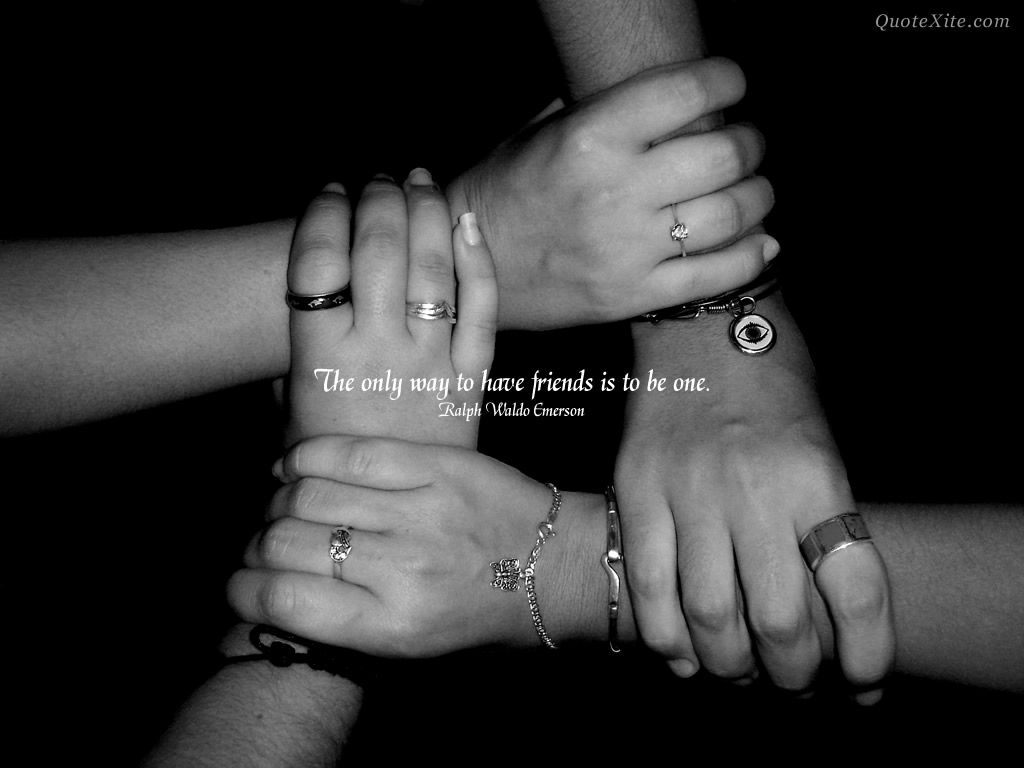
by bsquared5@aol.com | Jun 20, 2015 | Thoughts
I got together with my college roommates recently, just an afternoon catching up and a kind of “welcome to the area” for one who had moved back to the state. It had been over 25 years since we’d all seen each other, but aside from the teeniest traces of aging (just nod in agreement), we hadn’t changed much. The same personalities that drew us together and sometimes drove us to teeth-grinding annoyance as roommates were intact.
I love that about girlfriends–how you can just pick up in the middle as if you’d just left the room for a minute. We talked about people we used to know, what sort of roads we’d traveled, and things on our hearts. You know, what women do. Turns out, two of us had been in fairly serious car accidents. As they relayed their stories, we laughed at how different their reactions were.
One had been in the middle of Secret Service training. She hydroplaned on the interstate in Atlanta, got T-boned by an 18-wheeler and was pushed sideways for several yards before stopping. Hands on the wheel and feet planted, she tried to maintain control. Amazingly, she was mostly unhurt, and her first thought was potential security breaches, so she gathered her laptop, parking stickers, and uniform before heading to the hospital. Methodical, matter-of-fact, and calm.
Another was in a truck in Mississippi with her husband, who passed out and drove off a steep embankment, hurtling downhill through trees and branches. She screamed and flailed as she was flung around inside the truck. Once they came to a stop and her husband woke up, she blubbered and tried to get her bearings. Her first thought as she patted herself down for injury: “I lost my hair clippy!” Frantic, scattered, and illogical.
I don’t know what their different reactions say about them as people, but I tell their stories to show how we seem worlds apart in some ways and yet are friends because we “knew each other when.” We all have these people, friends who witnessed us as we grew up, know our best and worst selves at different stages of our lives (and liked us anyway). People who knew us when we were relatively unscathed by life and unburdened by the wounds of adulthood.
If someday my children convened all of them into one room and asked them to describe their mom in one word, it might seem they were talking about a handful of strangers, not the “me” my kids know. I asked my aunt recently about things she and my mother used to do when they were young, and her answers surprised me. The opinions and stories she shared about my mother were nothing like the figure of her I held in my memory. Same person, different time.
It occurs to me sometimes to make a list of some key girlfriends, a reference of sorts, should something ever happen to me and my kids find themselves curious like I did. I’d include the girl I met in fourth grade and learned to ride horses with, my best friend in junior high who was a two-headed ghost with me on Halloween, and my high school BFF who danced to Bananarama with me and shepherded me through constant self-doubt. Maybe they’d tell stories I would cringe at: the time I was less than kind to that girl on the bus, when I sulked over my friend’s picture being judged better than mine, when I was mad that I got in trouble over throwing that paper airplane so I told and made her get in trouble too. Lots of less-than-stellar moments they could mention.
But also: That cherry Blow-Pop kiss with the guy at the dance, being afraid of the older kid with greasy hair whose dad always yelled at him so the whole neighborhood could hear, writing a hilarious parody of Julius Caesar and performing it for all the English classes. My college roommates could contribute a thing or two. Maybe the time I hung out the 4th story window so I could shoot a water gun into the guys’ apartment on the floor below. That was definitely a highlight.
More recently, there are the ladies I’ve raised kids with. Those from that time I went to the gym for about five minutes, other classroom moms, moms on the sidelines of ballgames and sports events. The girls that listen and offer advice on toddlers, tantrums, and teenagers. The ones who get it, who get you, and who show up and give hugs, laughter, and chocolate, not necessarily in that order.
Conversations now are not about that cute guy in chem class or how to create the perfect smoky eye. Now they’re about maintaining marriages, career changes, how heavy it feels sometimes to still be parenting your own kids while your parents need you, too. Now instead of rallying for a dance, we rally around each other when a marriage fails, or when someone miscarries, faces disappointments with fertility or adoption or special needs. We bring food after surgeries, hold hands during chemo, and cry about those we lose. We mother our own kids and each other’s, too, praying they are safe and make good decisions. We mother the kids of girlfriends we’ve lost, giving them hugs and brownies, encouragement and solid ground. And if we can’t be mothers, we are The Best Aunts Ever.
We can still have a blast, too, at a concert or at dinner. We take selfies and dress up for Halloween and laugh when we can’t figure out our phones or see the menu because the lights in this place are always too dim. We talk movies, books, politics, and people. We have each other’s backs. Even 25 years later. It’s what friends do.
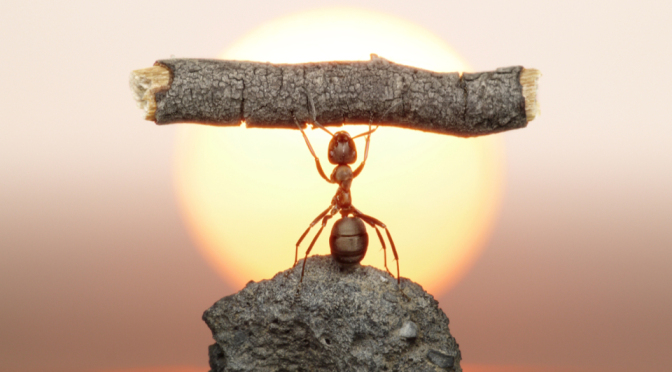
by bsquared5@aol.com | Jun 14, 2015 | Thoughts
I’m thinking our house must sit on top of an ancient Indian ant burial ground. For the past few weeks, tiny specks of pepper have been scurrying around the cat food and finding their way into the house via impossible cracks. On closer inspection, the pepper specks have legs. Exactly six. And antennae. They seem undeterred by copious amounts of poisonous sprays or natural remedies like lemon, cinnamon, or cayenne pepper. The cats have been forced to eat around the creepy crawlies–or simply ingest them as extra protein.
My daughter even discovered ants in her car. Those must have been the Mission Impossible species, clinging to the tire treads at interstate speeds, their antennae flattened by the high winds. Must. Find. Sugar. Source. MI-6 has disavowed all knowledge.
Finally we called the big guns and the exterminator came out to lock down the perimeter. I’m sure whatever force-field she sprayed around the house is probably some neurotoxin that will eventually render us all drooling idiots, but I can no longer handle wiping the counters and finding the paper towel covered in black ants. So for the next few days, we’ll be taking shallow breaths to minimize intake and crossing our fingers that the hideouts have been destroyed.
I should not complain. Where I grew up in Florida, you had to be very careful where you sat or stood outside because chances were good you were probably within attack distance of a fire ant mound. A few months ago, I drove through Alabama and could see their red-dirt mounds alongside the interstate, camouflaged in the tall grass. The sight sent an involuntary shudder through me, and I made sure the windows were rolled up. We were playing tag once, and I fell into one of these cone-shaped piles of sand. Within seconds, the red armies were pouring out like streams of water, stinging wherever they stuck to my skin. Fire ants are so named because the venom they inject actually feels like fire under the skin. A more descriptive name might be Hell Ants or maybe Napalm Ants. Unlike bees, ants do not die when they sting, so they can repeatedly sting while they cling to one spot.
I ran furiously brushing, swatting, and howling to my mother who, dishtowel in hand, whacked me all over to get the clinging monsters off. I know firsthand where the adage “ants in your pants” comes from. To add insult to injury, their stings turn to small blisters that itch like the mother of all mosquito bites. I hate–not too strong a word–hate this kind of ant. Had I, at age seven, been given a flame thrower, I would have taken my revenge with a maniacal laugh—-mwuahahahaha!
Aside from the beaches, Florida is not really meant for human habitation. The heat and humidity breed uncommon insects. One rare lazy morning we all sat at the kitchen bar, excited to have homemade waffles for breakfast. As my mother heated the waffle iron, an odd odor like burning metal started to fill the room. We checked the outlet and the oven– nothing. The green light blinked on the waffle iron signaling it was hot enough to cook waffles. When she lifted the lid, panicked and burning black carpenter ants spilled from the hot surface. The closed waffle iron had been the perfect ready-made nesting area, like an ant farm, with corridors and hallways all laid out. These ants were large, each part of their body like the pearls on a blackberry, and their little feet were toasting as they labored to save their young. We screamed and swatted, smacked and shrieked, as they poured over the counter and onto the floor. My mother practically threw the hot waffle iron at my father, and he ran to throw it outside. We had eggs instead.
nothing. The green light blinked on the waffle iron signaling it was hot enough to cook waffles. When she lifted the lid, panicked and burning black carpenter ants spilled from the hot surface. The closed waffle iron had been the perfect ready-made nesting area, like an ant farm, with corridors and hallways all laid out. These ants were large, each part of their body like the pearls on a blackberry, and their little feet were toasting as they labored to save their young. We screamed and swatted, smacked and shrieked, as they poured over the counter and onto the floor. My mother practically threw the hot waffle iron at my father, and he ran to throw it outside. We had eggs instead.
Like bees, ants are often held up as examples of industrious character. The writer of Proverbs tells the sluggard to consider the ant and her ways: lots of initiative, always busy in every season. I used to spend long hours outside, watching lines of ants marching two by two, hurrah, hurrah! No matter how many drops of water you put on them, or how you tried to divert their path, they were dauntless. Grain by grain, they build their hills patiently and steadily. Like African women along the village roadside, they carry enormous loads balanced above their heads, walking great distances to reach their home.
On the other hand, many species of ants pillage other colonies and steal their eggs. These eggs are then either eaten or the young, once hatched, are forcibly required to work. In other words, they make ant slaves. Except for Antarctica and the Arctic, ants are everywhere. Scientists estimate their numbers on earth to be a paltry quadrillion at any given time. That’s 15 zeros. I checked.
So, while you might see them as industrious little yes-men, I see them as our future insect overlords. While they may seem small and (aside from the fire ants–may curses be upon their tiny heads!) relatively harmless, these invasive, enslaving, cooperative little creatures outnumber us by, well, a lot of zeros. Perhaps I should be nicer to them? My swatting, burning, and spraying may come back to–literally–bite me.

 the hot sun of Panama City, Florida, he often wore them shirtless and commando, one shoulder strap dangling from the back. He’d wear them until the buttons wore out, and then he’d hitch them up and pin them with fishing tackle. Denim Dickies with a collared tan or blue work shirt were utilitarian and tough, features that pretty much summed up his personality, too. He was a big man, standing 6’4″, but seemed even taller with a full head of thick white hair that stood on end from running his hands through it.
the hot sun of Panama City, Florida, he often wore them shirtless and commando, one shoulder strap dangling from the back. He’d wear them until the buttons wore out, and then he’d hitch them up and pin them with fishing tackle. Denim Dickies with a collared tan or blue work shirt were utilitarian and tough, features that pretty much summed up his personality, too. He was a big man, standing 6’4″, but seemed even taller with a full head of thick white hair that stood on end from running his hands through it. with “Mammaw,” our grandmother’s name, first uttered by a stray cat outside the screen door on her porch, mewling for food. “Meowmawww,” it cried endlessly, christening her forevermore.
with “Mammaw,” our grandmother’s name, first uttered by a stray cat outside the screen door on her porch, mewling for food. “Meowmawww,” it cried endlessly, christening her forevermore. and he lived. His hospital bed was a permanent fixture in their house from then on until he died over 40 years later, my grandmother caring for his every need daily. This was the definition of a special needs child, before there were programs, help, or even a name for what they shouldered.
and he lived. His hospital bed was a permanent fixture in their house from then on until he died over 40 years later, my grandmother caring for his every need daily. This was the definition of a special needs child, before there were programs, help, or even a name for what they shouldered. the sandy soil to cooperate. I think his secret fertilizer was fish guts, but I can’t prove it. I have a pitchfork that belonged to him. It sits in my barn with some other “vintage” tools, but I actually use it to clean the horse’s stall. I love its faded green paint and rusted tines, and the fact that the dirt and sweat from his laboring hands helped to make the wooden handle worn and smooth.
the sandy soil to cooperate. I think his secret fertilizer was fish guts, but I can’t prove it. I have a pitchfork that belonged to him. It sits in my barn with some other “vintage” tools, but I actually use it to clean the horse’s stall. I love its faded green paint and rusted tines, and the fact that the dirt and sweat from his laboring hands helped to make the wooden handle worn and smooth.








